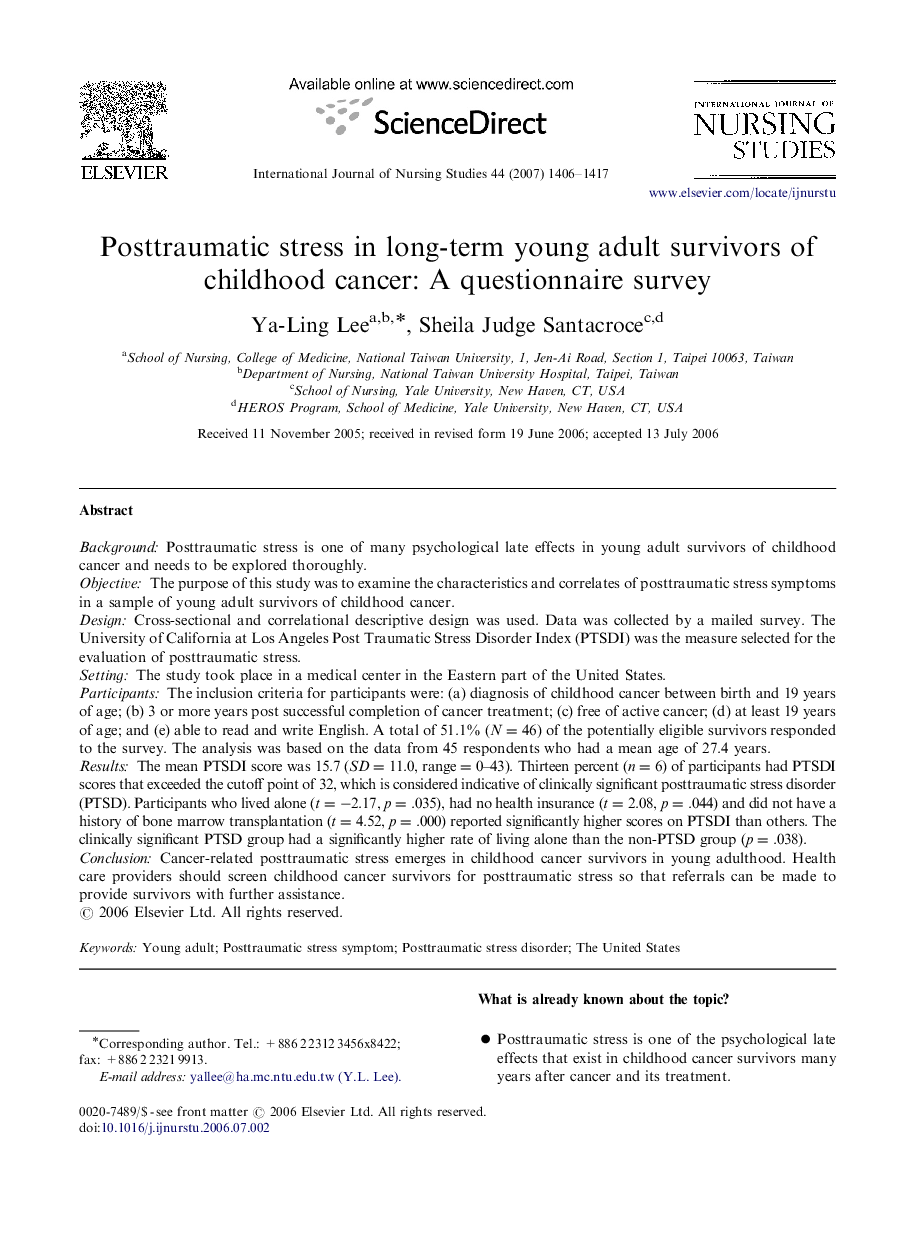| کد مقاله | کد نشریه | سال انتشار | مقاله انگلیسی | نسخه تمام متن |
|---|---|---|---|---|
| 1077475 | 1486613 | 2007 | 12 صفحه PDF | دانلود رایگان |

BackgroundPosttraumatic stress is one of many psychological late effects in young adult survivors of childhood cancer and needs to be explored thoroughly.ObjectiveThe purpose of this study was to examine the characteristics and correlates of posttraumatic stress symptoms in a sample of young adult survivors of childhood cancer.DesignCross-sectional and correlational descriptive design was used. Data was collected by a mailed survey. The University of California at Los Angeles Post Traumatic Stress Disorder Index (PTSDI) was the measure selected for the evaluation of posttraumatic stress.SettingThe study took place in a medical center in the Eastern part of the United States.ParticipantsThe inclusion criteria for participants were: (a) diagnosis of childhood cancer between birth and 19 years of age; (b) 3 or more years post successful completion of cancer treatment; (c) free of active cancer; (d) at least 19 years of age; and (e) able to read and write English. A total of 51.1% (N=46) of the potentially eligible survivors responded to the survey. The analysis was based on the data from 45 respondents who had a mean age of 27.4 years.ResultsThe mean PTSDI score was 15.7 (SD=11.0, range=0–43). Thirteen percent (n=6) of participants had PTSDI scores that exceeded the cutoff point of 32, which is considered indicative of clinically significant posttraumatic stress disorder (PTSD). Participants who lived alone (t=−2.17, p=.035), had no health insurance (t=2.08, p=.044) and did not have a history of bone marrow transplantation (t=4.52, p=.000) reported significantly higher scores on PTSDI than others. The clinically significant PTSD group had a significantly higher rate of living alone than the non-PTSD group (p=.038).ConclusionCancer-related posttraumatic stress emerges in childhood cancer survivors in young adulthood. Health care providers should screen childhood cancer survivors for posttraumatic stress so that referrals can be made to provide survivors with further assistance.
Journal: International Journal of Nursing Studies - Volume 44, Issue 8, November 2007, Pages 1406–1417